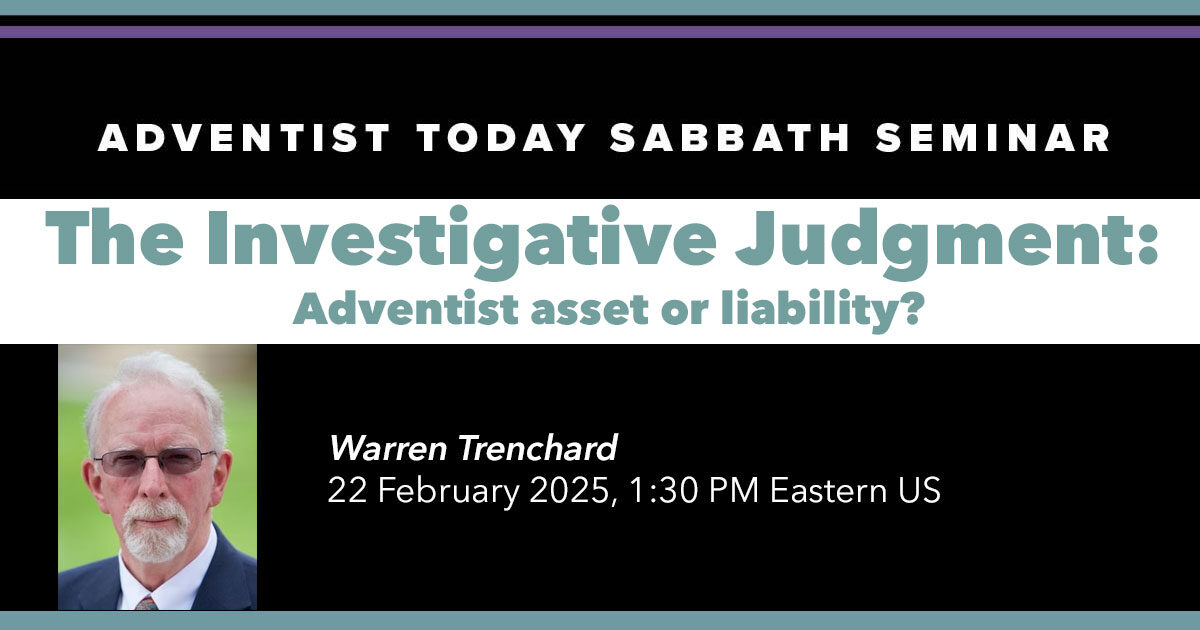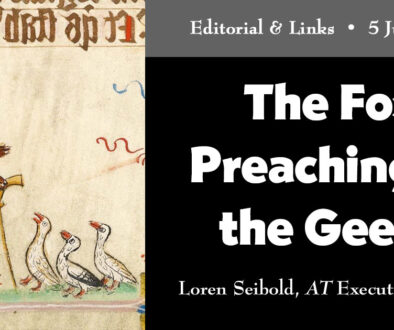ATSS: Warren Trenchard, “The Investigative Judgment: Adventist Asset or Liability?”
19 February 2025 |
The investigative judgment (IJ) idea, that Jesus began a new phase of activity in heaven in 1844, has been Adventism’s most contested and troublesome doctrine. We know that a group of Millerites waited for Jesus to return on October 22, 1844. But what happened afterwards, when their expectations failed, has taken on a sort of mythological significance: a farmer and lay preacher, Hiram Edson, was said to have had a vision that night, seeing that Jesus entered the Most Holy Place of the heavenly sanctuary in order to enact the sin-cleansing ritual of the Old Testament Day of Atonement.
Yet the truth is far more complicated. The teaching was not arrived at in an instant, nor can it be credited entirely to Hiram Edson. It took years, the collected ideas of many people, and a number of false starts before the church arrived at the teaching that we tell people today.
As years have passed, the questions about the IJ have only become more intense. What is the purpose of what Adventists say is happening in heaven right now? Is it biblical? Raymond Cottrell, an editor of the SDA Bible Commentary and one of the founders of Adventist Today, defined the question in the title of a presentation he gave toward the end of his life: is the Investigative Judgment an asset or a liability to the Adventist church?
This presentation will consider the Adventist doctrine of the investigative judgment—specifically, the origin and development of the doctrine, Ellen White’s view of it, the language and cited biblical support of the teaching in Fundamental Belief 24, and the doctrine’s status among us today. Is it still a meaningful and necessary part of the Adventist mission and message?
Teacher:
Dr. Trenchard served as a member of the faculty and a senior administrator at what is what is now Burman University in Alberta, Canada, and at La Sierra University, for over thirty-five years. In retirement, he is professor of New Testament and early Christian literature. His principal teaching and research interests include New Testament Greek language; history, backgrounds, and interpretation of the New Testament and its individual documents; and history and literature of Early Christianity.
Moderator:
Linda Nottingham is a retired businesswoman residing in Florida.
How to join:
Join Zoom Meeting: https://us06web.zoom.us/j/87295290671
Passcode: SANCTUARY {ALL CAPS}
ATSS starting time depends on where you are. If you’re on the west coast of the United States, it’ll be 10:30 AM. On the east coast, 1:30 PM. Times in Europe, Africa, and elsewhere will vary with local time changes. Please double-check the correct time where you live.
The class is intended to last about 2 hours, though the conversation often continues to 4 PM (Eastern time).
About our class:
- The AT Sabbath Seminar is intended to be a courteous forum.
- Stick to the topic in both comments and chat discussion.
- Make your comments and questions short—don’t dominate.
- Keep your microphones muted unless you are called upon to make your comment or ask your question.
- Indicate your interest in speaking by raising your electronic hand.
- Please use your name when you sign in, so we know who we’re addressing.
We look forward to getting acquainted with you!
YouTube channel:
You can see all of our previous ATSS recordings here.
Coming up:
- Bryan Ness
- Marcelo Reis
- Andreas Bochmann
- Stephen Ferguson
- Maury Jackson
- Steve Case




